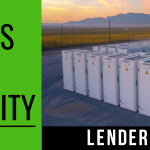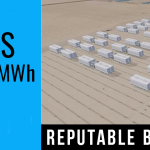
India’s newly appointed finance minister, Nirmala Sitharaman, has unveiled the country’s full-year budget that discussed support for PV manufacturing, but was thin on detail, while downstream solar was more or less omitted.
The budget runs up to 31 March 2020, following prime minister Narendra Modi’s recent thumping victory in the world’s largest democratic election.
The most explicit solar support was through ‘Mega Investment in Sunrise and Advanced Technology Areas’, where the government plans to invite international companies to set up huge manufacturing plants, via competitive bidding processes, in promising sectors such as solar PV cells, lithium storage batteries, and Solar EV charging infrastructure, among others. Sitharaman promised such firms investment linked income tax exemptions and other indirect tax benefits.
“The invitation to foreign PV manufacturers to set-shop in India, without prior stabilisation of the domestic manufacturing market, is premature and may prove to be counterproductive for the demand in the sector,” said Sunil Rathi, director at major Indian PV manufacturer, Waaree Energies.
Moreover, as solar is a key factor in India’s clean energy goals, Rathi was disappointed by the lack of other solar support in the budget, noting that there are “critical gaps” that need to be plugged, with continued uncertainty around the “short-sighted” safeguard duty on solar imports, as well as little movement on anti-dumping policy.
On a more positive note, Rathi concluded: “The only silver lining in the budget is the progressive movement towards [the] adoption of electric vehicles (EVs) and the incentives being offered to the end consumer. The promotion of clean energy through the use of EVs is likely to boost the demand in the segment, thus providing impetus to achieve economies of scale and in-turn create a viable ecosystem.”
Indeed, Sitharaman’s Budget sought to “leapfrog” India into a global hub of EV manufacturing, which would boost solar-plus-storage and charging infrastructure sectors in tandem. The Goods and Service Tax (GST) has already been lowered from 12% to 5% for EVs, while the government will provide additional income tax deduction of INR150,000 (US$2,185) on the interest paid on loans taken to purchase EVs.
Dr Rahul Walawalkar, president, India Energy Storage Alliance (IESA), welcomed the GST and income tax reductions, claiming that they would speed up the EV revolution. He also praised exemption from custom duties for EV components such as e-drives and onboard chargers.





